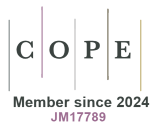Early access to the market: from the conditional approvals of the EMA to the specific contractual agreements of AIFA
DOI:
https://doi.org/10.33393/grhta.2018.430Keywords:
AIFA, Conditional Marketing Authorisation, EMA, Managed Entry Agreements, Market Access, Regulatory Affairs, Under Exceptional CircumstancesAbstract
The European Medicines Agency (EMA) has adopted assessment systems and drug registration procedures to respond to the needs for rapid patient access to therapies, such as Conditional Marketing Approval (CMA) and Under Exceptional Circumstances approval (UEC). The Italian Medicine Agency (AIFA) has introduced tools for governing prescriptive behaviour in order to promote appropriateness and correct use of drugs and to manage the uncertainty of financial impact, including Managed Entry Agreements (MEAs). The MEAs are conditional access agreements to the market for new drugs aimed at managing the uncertainty on the clinical and economic effects of the drugs themselves. The aim of this study is to analyse, through the use of the information systems of the AIFA and the institutional website of the EMA, how the drugs authorised by EMA with CMA or UEC have been managed on the access side to the Italian NHS. This in order to understand how the uncertainty deriving from the authorisation processes was subsequently reflected on the reimbursement processes to be borne by the NHS. From the analyses carried out, it emerges that 64% of the drugs approved with CMA were admitted to reimbursement and 68% of those approved with the UEC procedure. Furthermore, it can be noted that approval with CMA is predictive for the application of a financial-based or outcome-based MEA (61%), with the application of a monitoring register, unlike the drugs approved UEC for which no conditional reimbursement arrangements have been applied at the patient level. Furthermore, by carrying out a comparative analysis of the time of access to market following negotiation, from the positive opinion of the CHMP to the decision published in the Official Gazette of the Italian Republic, it emerged that the drugs approved by the UEC procedure take on average more time (897 days) to arrive at the price and reimbursement (P&R) compared to CMA drugs (636 days). Considering instead only the period from the request for P&R to the determination of P&R for the same group of drugs, the process seems to be on average faster for the drugs classified as UEC than for those with CMA (329 vs. 510 days).










